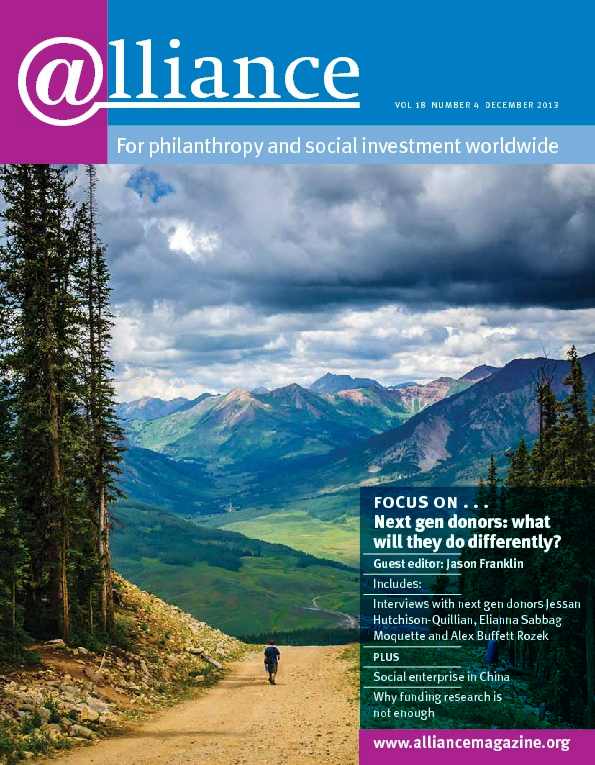Is it possible that the next generation of donors are coming up with a new and better vision for how the world works? Take Jessan Hutchison-Quillian, the 25-year-old American Google engineer who gives away around 40 per cent of his salary because he doesn’t see why he needs more to live on than most of his friends. He imagines a world in which everyone gives away at least 10 per cent of their income – ‘that’s similar to taxes,’ as he points out.
Or Elianna Sabbag Moquette from Switzerland. ‘The more we support socially minded businesses,’ she says, ‘the more the demands placed on larger businesses to integrate social principles into the way that they operate will grow. This is our vision.’
Young Egyptians similarly favour support for social enterprises, according to Marwa El-Daly, while young Brazilians see their own businesses as the vehicle for change. ‘One clear trend is a preference on the part of the younger generation of donors to want to do things in a more integrated way,’ reports Elaine Smith, ‘achieving social impact through their businesses rather than through philanthropy.’
It is this integrated approach that is central here, as guest editor Jason Franklin points out. ‘As young donors are getting involved in philanthropy earlier in their lives than their parents and grandparents,’ he writes, ‘there seems to be a global tendency to integrate philanthropy more directly into their lives and to see it as one more expression of their passions rather than an activity done on the side.’ The vision seems to be transformation not tinkering around the edges.
For previous generations, says Franklin, ‘the tradition was for serious philanthropic activity to begin after careers were established or even as people entered retirement’. Philanthropy has been seen almost as a second career, often a more enjoyable one.
There are huge contradictions built into this model of philanthropy. A society where accumulation of wealth is relatively easy, as is the case in much of the world today, produces both great inequality and, hopefully, more philanthropy. A key role of philanthropy is then to mitigate some of the harmful effects of growing inequality – as opposed to groups like Resource Generation that want to work out how to curb wealth inequality.
Characteristic of many philanthropists has been the feeling that ‘donors know best’. Having created or run successful businesses, they are ready to turn their hand to philanthropy. Many have a low opinion of NGOs, seeing them as well-meaning but inefficient. This sort of feeling is refreshingly absent among the young donors whose voices we hear in this Alliance special feature. ‘If someone is passionate about “xyz” cause,’ says Alex Buffett Rozek, who could be speaking for many here, ‘and wants to start a non-profit to help it, it makes sense for them to see if there are existing groups working in the same area, towards a common goal.’






Comments (0)